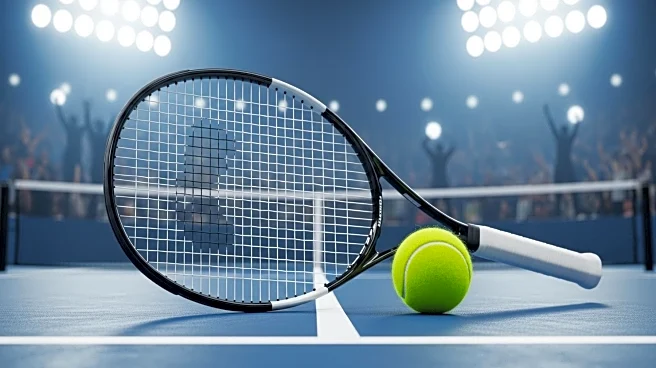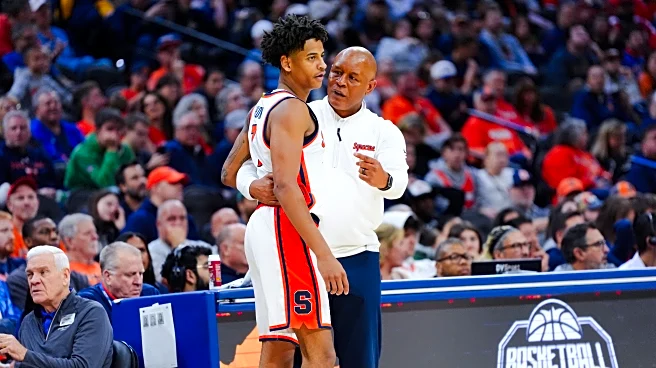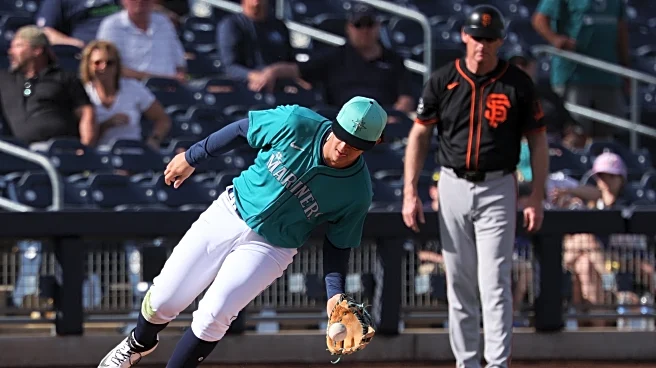What's Happening?
Coco Gauff, the defending champion at the China Open, is engaging with fans in Beijing and expressing a desire for a new nickname. Known affectionately as the 'Fruit Salad Queen' due to her habit of snacking on fruit salad for energy, Gauff is also called the 'Ambassador of Beijing' for her praise of the city. She recently won her opening match against Kamilla Rakhimova with a score of 6-4, 6-0 and is set to face Leylah Fernandez next in the WTA 1000-series tournament. Gauff has received numerous gifts from fans, which she appreciates greatly, and has challenged them to come up with a nickname inspired by an animal that reflects her tenacity on the court.
Why It's Important?
Coco Gauff's interaction with fans at the China Open highlights the cultural exchange and personal connections that can occur in international sports events. Her request for a new nickname demonstrates her engagement with the audience and her openness to embracing different cultural perspectives. This interaction not only enhances her popularity but also strengthens the relationship between American athletes and international fans, potentially increasing her global fan base and marketability. The attention she receives can influence sponsorship opportunities and her standing in the sports community.
What's Next?
As Coco Gauff continues her title defense at the China Open, her performance against Leylah Fernandez will be closely watched. The outcome of this match could further solidify her status as a top competitor in women's tennis. Additionally, the response from fans regarding her nickname challenge may lead to new branding opportunities or fan-driven initiatives. Gauff's ongoing success and interaction with fans could inspire other athletes to engage more deeply with their audiences, fostering a more inclusive and interactive sports environment.
Beyond the Headlines
Gauff's request for a nickname inspired by an animal reflects a broader trend of athletes seeking to personalize their public image and connect with fans on a deeper level. This approach can lead to a more relatable and humanized perception of athletes, moving beyond their professional achievements to highlight their personalities and interests. Such interactions can contribute to a more diverse and culturally rich sports community, where athletes are seen as multifaceted individuals rather than just competitors.










